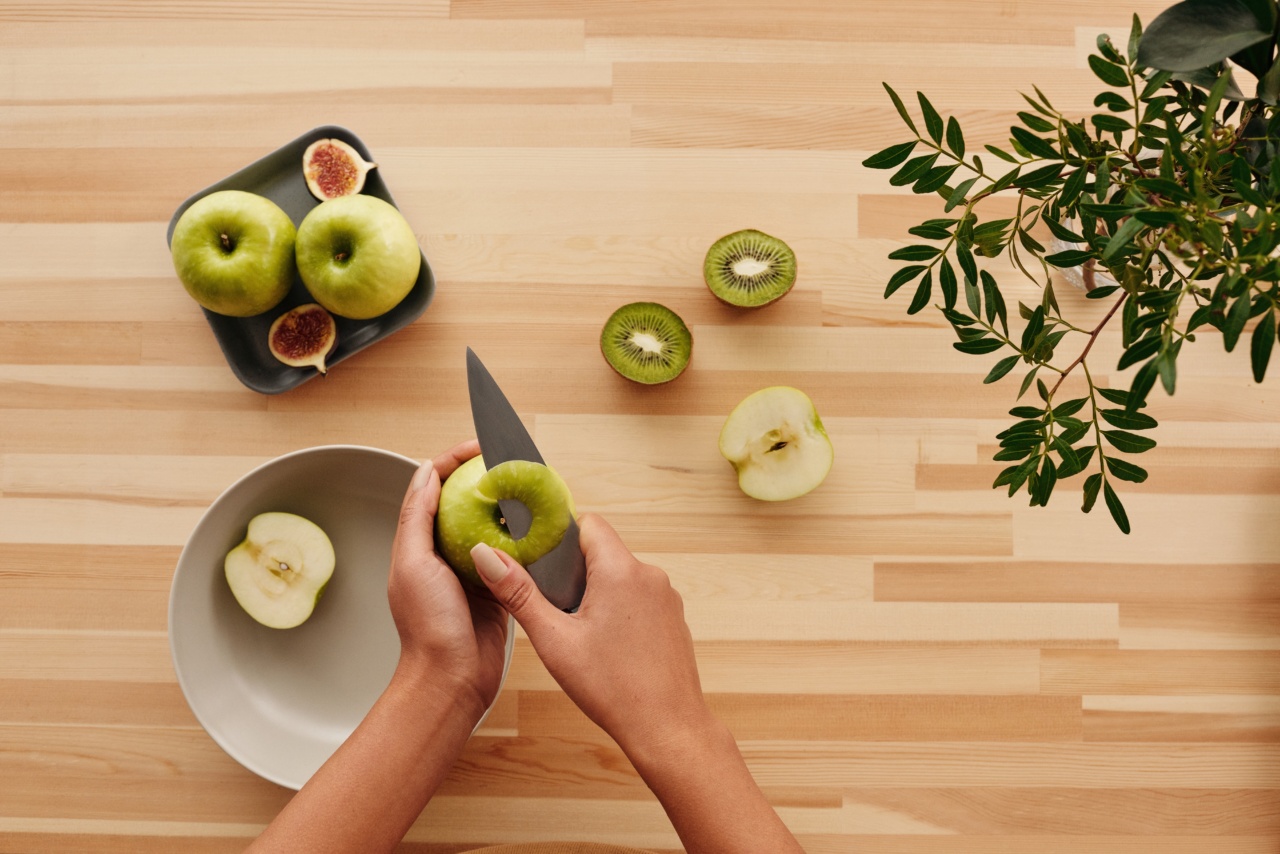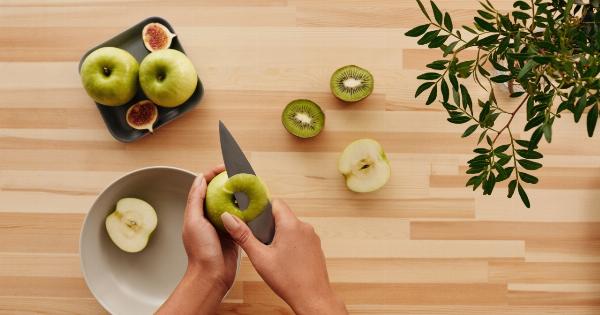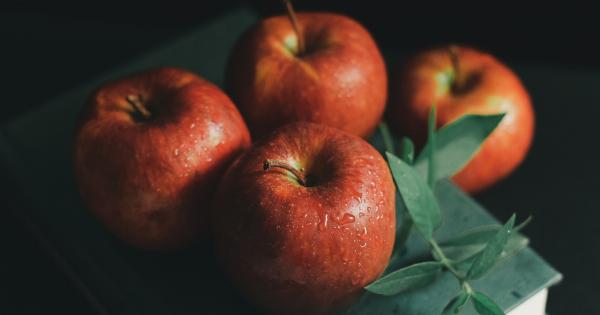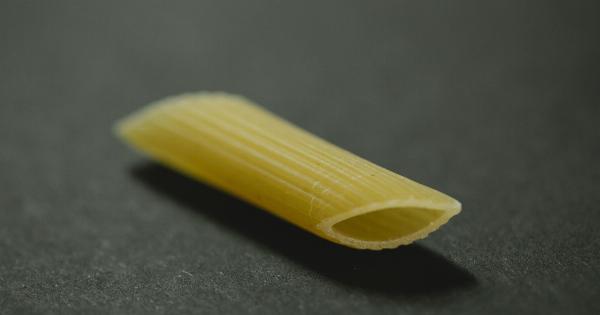When it comes to consuming fruits and vegetables, we often find ourselves faced with the dilemma of whether to peel or not to peel.
While the peels of certain fruits and vegetables may not be very appealing in terms of taste or texture, some individuals choose to remove them due to various reasons. One major concern raised by those in favor of peeling is the potential loss of essential vitamins.
But is this concern justified or just a myth? In this article, we will delve into the topic and explore whether peeling fruits and vegetables actually leads to the loss of vital nutrients.
Nutritional Value of Fruits and Vegetables
Fruits and vegetables are well-known for their abundance of essential vitamins, minerals, and other beneficial compounds. They are packed with vital nutrients that are necessary for maintaining good health and well-being.
These nutrients include vitamins A, C, and K, as well as various B vitamins, fiber, antioxidants, and minerals like potassium and magnesium.
The presence of these nutrients makes fruits and vegetables an integral part of a balanced diet.
They are crucial for proper growth and development, immune function, physical and mental performance, and reducing the risk of chronic diseases such as heart disease, cancer, and obesity.
The Case for Peeling
Many individuals choose to peel the skins of certain fruits and vegetables due to personal preferences, textural issues, or even concerns about food safety. Some fruits and vegetables also have rough or bitter peels that are less palatable.
While these reasons are valid from a subjective standpoint, the belief that peeling negatively impacts the nutrient content is not entirely accurate.
The Nutrient Content in Peels
It is true that the nutrient content can vary between the edible flesh and the peels of fruits and vegetables. However, this does not necessarily mean that peeling causes significant nutrient loss.
In fact, the peels often contain a unique set of nutrients that can provide additional health benefits.
For instance, the peels of apples and pears are rich in dietary fiber and antioxidants, particularly flavonoids. These compounds have been linked to lower rates of heart disease, improved digestion, and reduced inflammation.
By peeling these fruits, one may miss out on these additional health benefits.
Similarly, the peels of potatoes are loaded with nutrients such as vitamin C, potassium, and dietary fiber.
Removing the potato skins would lead to missing out on these valuable nutrients, which are known to support a healthy immune system, blood pressure regulation, and gut health.
In addition, the peels of citrus fruits like oranges and lemons contain essential oils that possess antimicrobial and anticancer properties. By peeling these fruits, one could potentially miss out on the benefits conferred by these bioactive compounds.
Factors Affecting Nutrient Retention
While peeling may not necessarily lead to the loss of essential vitamins, it is worth considering other factors that can affect nutrient retention in fruits and vegetables.
These factors include cooking methods, storage conditions, and the duration between harvest and consumption.
Cooking methods such as boiling, steaming, or microwaving can cause some nutrients to leach out into the cooking water. This is particularly true for water-soluble vitamins like vitamin C and B vitamins.
However, the extent of nutrient loss depends on the cooking time and method used. Shorter cooking times with minimal water exposure help retain more nutrients.
Storage conditions, such as exposure to light, heat, and air, can also impact the nutrient content of fruits and vegetables.
Some vitamins, like vitamin C, are sensitive to heat and oxygen, so proper storage in a cool and dark place is essential to preserve their nutritional value.
The duration between harvest and consumption can also affect nutrient levels.
Fruits and vegetables that are harvested ripe and consumed immediately will generally retain more nutrients compared to those that travel long distances and undergo extended storage periods.
Strategies to Retain Nutrient Content
If you prefer to peel your fruits and vegetables, there are a few strategies you can employ to ensure that you still benefit from their nutritional value:.
1. Opt for organic produce: Organic fruits and vegetables are often grown without the use of synthetic pesticides and may have higher nutrient levels in their peels compared to conventionally grown counterparts. 2. Thoroughly wash before peeling: Washing fruits and vegetables before peeling can help remove any surface dirt or bacteria. However, be cautious when using detergent or other cleaning agents as they may negatively affect the flavor or nutritional content. 3. Use peels creatively: Instead of discarding peels, consider incorporating them into your recipes. For example, potato peels can be seasoned and baked to make nutritious snacks, or citrus peels can be used to add flavor in cooking or baking. 4. Consume a variety of fruits and vegetables: By consuming a diverse range of fruits and vegetables, you can ensure that you receive a wide array of nutrients, even if you occasionally choose to peel certain items.Closing Thoughts
In conclusion, peeling fruits and vegetables does not automatically equate to significant nutrient loss. While it is true that some nutrients may be more concentrated in the peels, the overall impact on nutrient intake is negligible.
Considering factors such as cooking methods, storage conditions, and the duration between harvest and consumption can have a more substantial effect on nutrient retention.
Ultimately, whether to peel or not comes down to personal preference, taste, and texture.
It is important to remember that a well-rounded and varied diet, rich in colorful fruits and vegetables, is key to obtaining all the essential nutrients necessary for optimal health.






























